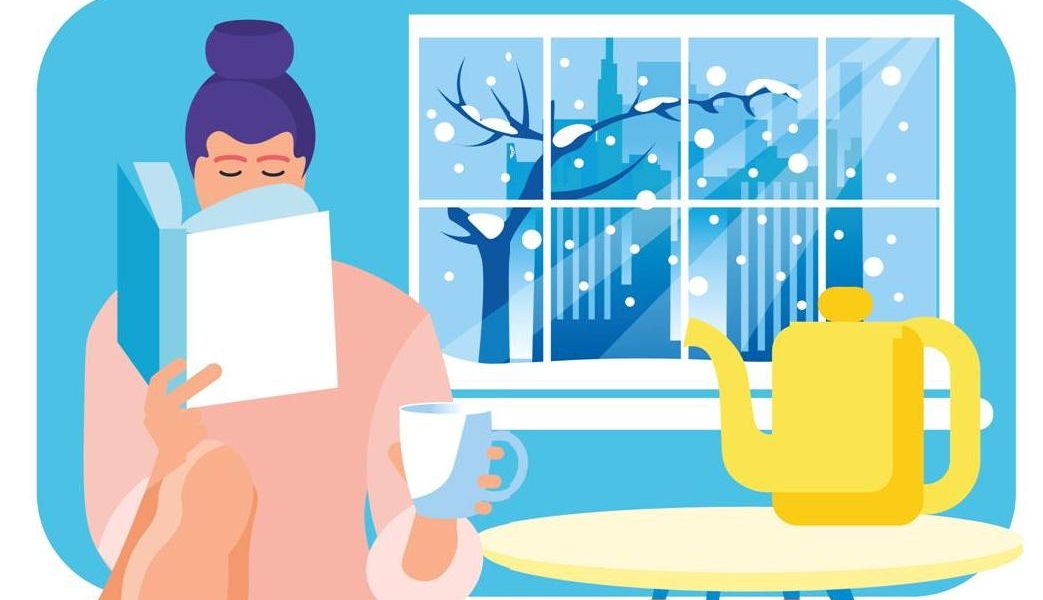It might be tempting to blame your sniffles on the arrival of scarf and jacket weather, but developing a cold has less to do with being physically cold and more to do with environmental effects that happen around this time of year as viruses don’t tend to like high-humidity, which means they’re better at surviving longer in the chilly weather. This, along with the fact that people tend to stay indoors during winter, means it’s easier for them to transfer from person to person. Often, the best way to combat a cold is to rest up and keep your body nourished and hydrated. To find out what we can do to beat it when it strikes, we asked Dr Riccardo Di Cuffa (your-doctor.co.uk) for his top tips.
Rest up
It’s age-old wisdom, but curling up in your duvet when your nose starts to run is scientifically proven to have a positive effect. “The best treatment for a cold is to rest,” says Dr Di Cuffa. “Our bodies are already forced to work harder and use more energy when we’re fighting an illness, so rest and time are two of the best remedies. Get as much sleep as you can, stay hydrated, keep warm, eat when you can and, if you need to bring your temperature down or have pain relief, then take paracetamol and/or ibuprofen. If you don’t feel better within a week then give your GP or 111 a call so they can advise you. If your temperature remains consistently high over several days, that’s also the time to call your GP.”
Stay hydrated
Keeping up your fluid intake is important throughout the year, but during cold and flu season, it becomes even more integral. “By drinking lots of water and loading up on fluids, you can reduce inflammation, such as headaches, relieve flu symptoms and provide overall support to your immune system,” says Dr Di Cuffa. “Keeping well-hydrated helps your kidneys to balance electrolytes and filter waste from your body, and drinking more fluids can also allow mucus to be coughed out. Alcohol and too much caffeine, on the other hand, are best avoided.”
What’s the tea?
Love a daily cuppa? Well tea lovers can rejoice, as certain hot drinks can help to soothe that bunged up feeling. “Drinking a hot brew can soothe your sore throat, help with congestion and, some even argue that herbal ingredients, such as ginger, lemon, cayenne, raw honey, cinnamon and turmeric, can help with respiratory infection symptoms,” says Dr Di Cuffa. “Certainly there’s no harm in drinking herbal tea if it’s going to help keep you hydrated.”
Time to gargle
Sometimes, a case of the sniffles develops into having a headache or a sore throat. One of the best things you can do for your body when a cold strikes is lift the mucus, as Dr Di Cuffa explains: “Gargling with salt water isn’t the most pleasant thing but it can loosen thick mucus and can help remove bacteria from the throat to some extent. Gargling with warm water or herbal tea can also provide relief.”
Eat for energy
While many of us don’t feel like eating if we’ve got a runny nose, it’s important to try and keep your levels up by eating nutritious foods. “Chicken soup has been prescribed by many generations as the best thing to eat when you are ill and there’s an element of truth to that,” says Dr Di Cuffa. “It’s easy to consume and a great source of protein, vitamins, minerals, fluids and electrolytes – it’s also a good way to get some healthy calories for energy. Vegetable broths are another alternative and garlic is a great add in because of it’s anti-bacterial properties.”
Heavenly honey
Love honey? Then think Manuka. This anti-bacterial natural remedy has long been heralded for its throat-soothing abilities, and while there are no natural remedies or medicines that absolutely cure a common cold, they can help your body fight back against the lurgy. “Manuka honey is great for when you feel unwell and there is some evidence that echinacea can reduce the time that a person suffers from a cold virus, and can encourage your immune system to stay on the defence,”says Dr Di Cuffa.
Beat congestion
While rest is super-important, light exercise can help you if you’re suffering from congestion. “If you don’t have a fever, gentle exercise is usually OK and could even help you feel better by opening your nasal passages and temporarily relieving nasal congestion,” says Dr Di Cuffa. “Don’t overexert yourself though, now is not the time to put your body through its paces. Rest and hydration are the best cures for colds. Seek medical advice if you’re not sure if you should be exercising, or if your cold continues for more than two weeks. Generally, of course, a healthy lifestyle protects your immune system. Exercise can help to relieve stress, which detrimentally affects your immune system.”
Stock up on supplements
Everything is better with hindsight and when it comes to colds, keeping your body in tip-top condition can make a big difference to the likelihood of you catching one. In an ideal world, we’d get all of our essential nutrients and micro-nutrients from our diet, but realistically, that’s not always possible, so supplements are a great solution. “Many people choose cold and flu remedies, like vitamin C, zinc and echinacea,” says Dr Di Cuffa. “Taken preventively, these remedies can certainly help.”


















